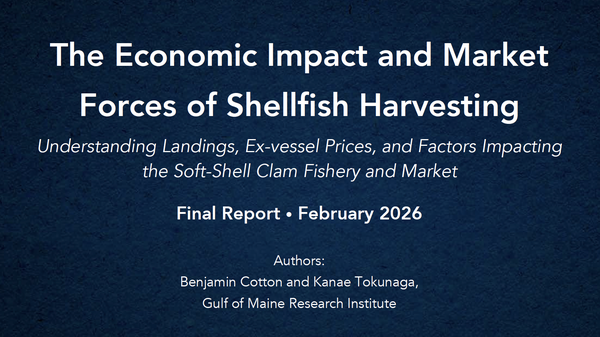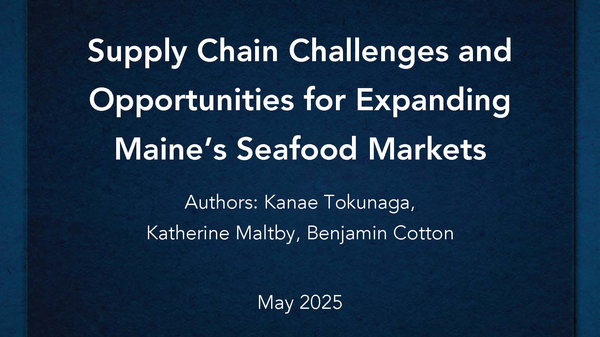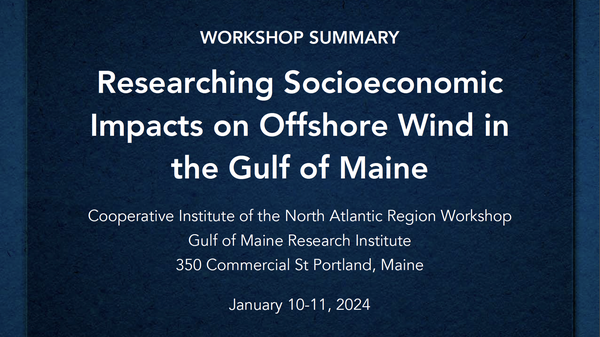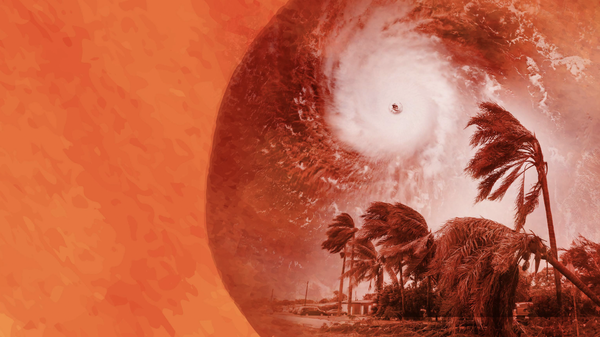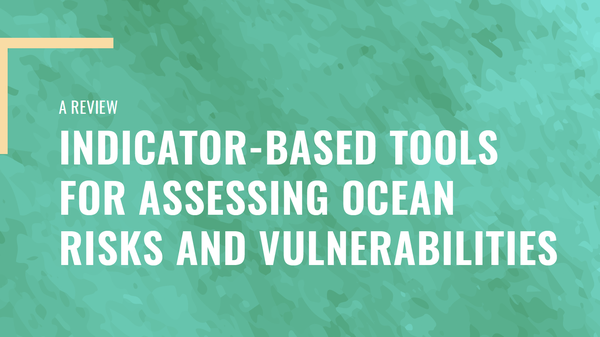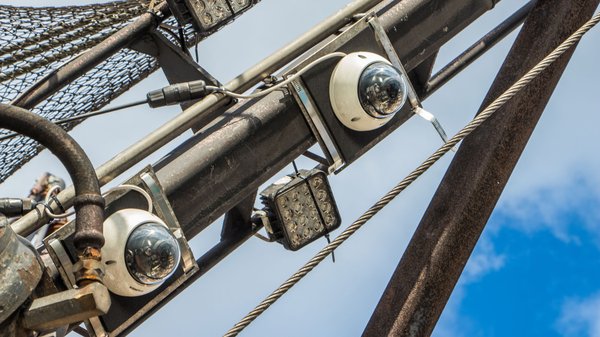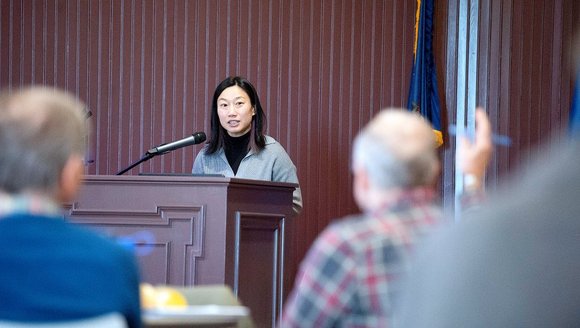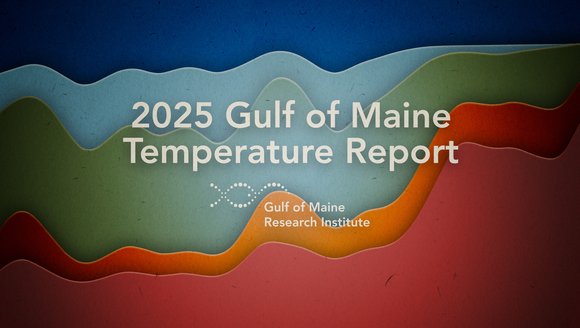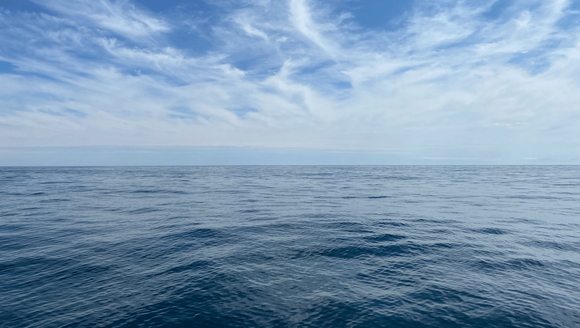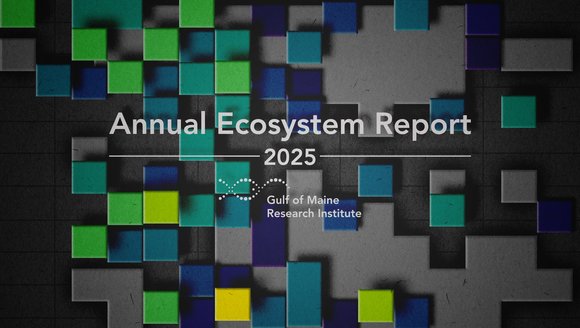Coastal and Marine Economics
Economics is more than just money and business — it's also connected to decisions and behaviors.
Our lab seeks to understand the mechanisms behind our decisions and behaviors, and how they relate to coastal and marine resource uses. How do we interact with our coastal and marine environment? How and why do we make the decisions we make? These are some of our key questions. We also explore how external factors, such as climate change and economic changes, affect our decisions and resource use patterns.
We aim to:
-
Explore and understand the complex trade-offs involved when people make decisions about the natural environment.
-
Support decision-makers by providing useful and timely information and tools.
-
Promote the sustainability and resiliency of communities and economies that depend on coastal and marine resources.
Lab Team
Our Methods
Our lab highlights the human dimensions of coastal and marine resource use.
We approach coastal and marine resource management issues using bioeconomic modeling, econometrics, and environmental valuation. Working closely with researchers from both natural and social science fields, we challenge disciplinary perspectives and assumptions to gain a more holistic and deep understanding of human-nature interaction. Collaborations and conversations with communities, decision makers, and industries are integral elements of our research.
-
Econometrics
-
Bioeconomic Modeling
-
Environmental Valuation
-
Social-Ecological Systems
-
Interdisciplinary Collaboration
Our lab highlights the human dimensions of coastal and marine resource use.
We approach coastal and marine resource management issues using bioeconomic modeling, econometrics, and environmental valuation. Working closely with researchers from both natural and social science fields, we challenge disciplinary perspectives and assumptions to gain a more holistic and deep understanding of human-nature interaction. Collaborations and conversations with communities, decision makers, and industries are integral elements of our research.
- Econometrics
- Bioeconomic Modeling
- Environmental Valuation
- Social-Ecological Systems
- Interdisciplinary Collaboration
Research Lab Projects
Explore Coastal and Marine Economics Projects
-
![Supporting Coastal Aquaculture Development]()
Supporting Coastal Aquaculture Development
Shellfish aquaculture is growing rapidly. In Maine, limited purpose aquaculture (LPA) licenses are relatively easy to attain, and this attracts more people to enter aquaculture …
-
![Arctic Warming and the Lobster Fishery]()
Arctic Warming and the Lobster Fishery
Arctic warming and melting sea ice are altering ocean circulation patterns in the Northwest Atlantic, affecting the distribution and abundance of lobster — an important …
-
![Re-evaluating the Cultural Value of Fisheries and Working Waterfronts]()
Re-evaluating the Cultural Value of Fisheries and Working Waterfronts
By conducting case studies in Japan and the US that more closely examines the relational values that local populations develop as they work with their …
-
![Assessing Allocation Strategies for Fisheries Affected by Climate Change]()
Assessing Allocation Strategies for Fisheries Affected by Climate Change
Our project aims to develop guidance and adaptive strategies for fishery managers grappling with climate change induced allocation challenges.
-
![Understanding the Aquaculture Supply Chain]()
Understanding the Aquaculture Supply Chain
The GMRI Coastal & Marine Economics lab contributes to this collaborative, industry-propelled, interdisciplinary research project will enhance the long-term economic sustainability of aquaculture in Maine …
-
![Supporting the Development of Socioecological Literacy]()
Supporting the Development of Socioecological Literacy
This project advances efforts to better understand and promote practices that broaden access to and interest in regionally relevant science, technology, engineering, and math (STEM) …
-
![Assessing Maximum Economic Yield Efforts for Maine's Lobster Fishery]()
Assessing Maximum Economic Yield Efforts for Maine's Lobster Fishery
This project evaluates the amount of effort that will maximize the overall economic benefit from the lobster resources in the Gulf of Maine by combining …
-
![Economic Analysis of Max Retention Electronic Monitoring]()
Economic Analysis of Max Retention Electronic Monitoring
Initially proposed as a cost-effective and comprehensive electronic monitoring program, the goal of the MREM program is to improve economic performance by fleets while simultaneously …
-
Coastal and Marine Economics Lab Reports
Explore reports on important topics, with contributions from the Coastal and Marine Economics team.
- Economic Impact and Market Forces of Shellfish Harvesting
- 2025 Seafood Supply Chain Analysis
- Researching Socioeconomic Impacts on Offshore Wind in the Gulf of Maine
- Ocean Risks in SIDS and LDCS
- Indicator-based Tools for Assessing Ocean Risks and Vulnerabilities
- Maximized Retention Electronic Monitoring in the Northeast Multispecies Groundfish Fishery
Read Next
-
Talk on climate change and the ‘blue acceleration’ in Maine takes place in Lewiston
Kanae Tokunaga, senior scientist in coastal and marine economics at the Gulf of Maine Research Institute, said the combination of climate change and blue acceleration …
Press Clips
-
2025 Gulf of Maine Temperature Report
Over the past decade, our scientists have led a body of research that highlights temperatures in the Gulf of Maine. To keep you informed, we …
Reports
-
Atlantic Meridional Overturning Circulation (AMOC) 101
This 101 explainer breaks down what the AMOC is, how it influences climate, what scientists are observing now, and what a changing AMOC could mean …
Perspectives
-
2025 Casco Bay Ecosystem Monitoring Report
Dive into the latest findings from a decade of nearshore monitoring in one of the world's fastest-warming marine ecosystems.
Reports








